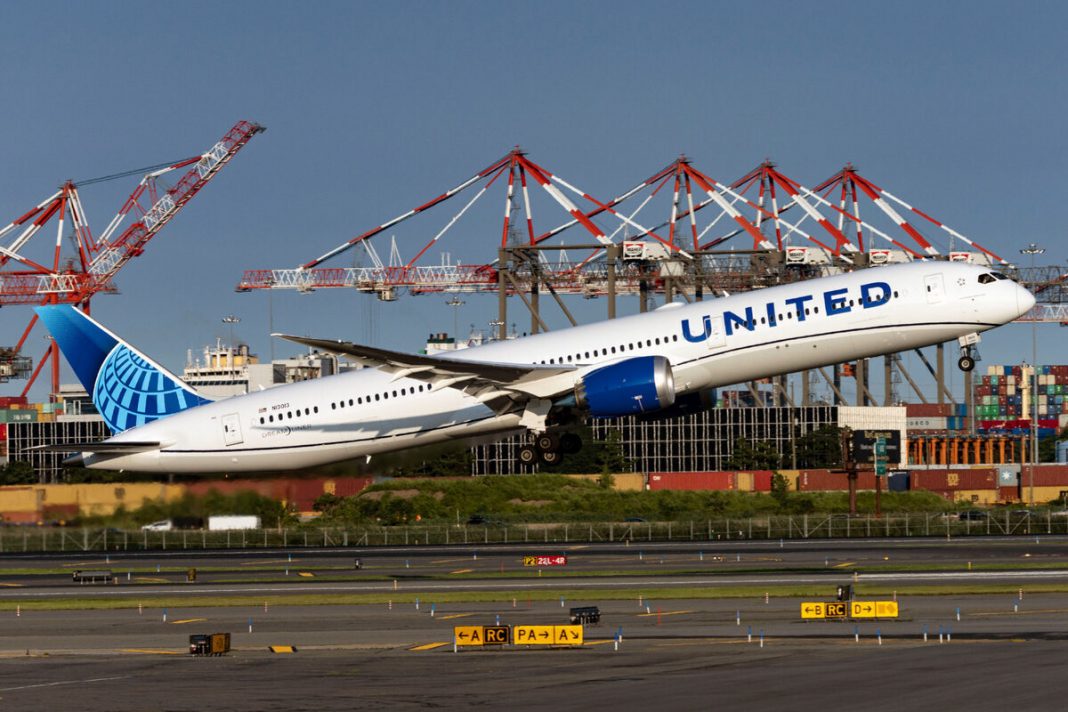On Thursday, United Airlines announced its most ambitious environmental commitment yet – to go 100% green by reducing 100% of greenhouse gas emissions by 2050. The carrier intends to reach this goal, not through purchasing offsets, but by investing in biofuels and direct carbon air capture technology.

Survival and sustainability
Before 2020, the biggest issue for the airline industry was the sustainability agenda. Along with the rise of the flight-shaming movement and harrowing reports of how climate change is already affecting our planet, finding more ways to reduce CO2 emissions is in the interest of airlines commercially, as well as that of future generations.
Then March hit and brought global commercial aviation to a complete standstill. What may at first have seemed like a moment’s respite for the planet as emissions from transportation plummeted could, in fact, come with a severe backlash. Planned investments into new, more fuel-efficient aircraft and other environmentally focused efforts could end up being delayed.
An industry-focus on short-term survival rather than long-term emission reduction is, under the circumstances, understandable. However, some airlines have kept up the work on their intentions to reduce their climate impact, perhaps even taking the lull in operations to double down on efforts.
On Thursday, United Airlines announced the most ambitious environmental commitment of any airline to date. It intends to go 100% green by reducing 100% of greenhouse gas emissions by 2050.

Carbon offsetting is not enough
In a statement issued December 10th, United said it would reach this goal by investing in new technology and sustainable aviation fuels, not through carbon offset schemes. Specifically, the airline will become the first to invest in what is known as Direct Air Capture technology.
“As the leader of one of the world’s largest airlines, I recognize our responsibility in contributing to fight climate change, as well as our responsibility to solve it,” said Scott Kirby, United’s Chief Executive Officer, in the statement seen by Simple Flying.
“These game-changing technologies will significantly reduce our emissions, and measurably reduce the speed of climate change – because buying carbon offsets alone is just not enough. Perhaps most importantly, we’re not just doing it to meet our own sustainability goal; we’re doing it to drive the positive change our entire industry requires so that every airline can eventually join us and do the same.”
We’re making an environmental commitment unmatched by any airline: to be 100% green by 2050 by reducing our greenhouse gas emissions 100%.
We recognize our responsibility in contributing to climate change – see how we plan to solve it. https://t.co/PBFj8k7zei pic.twitter.com/tX7fON0bNm
— United Airlines (@united) December 10, 2020

Direct Air Capture
United will make a multi-million investment in the atmospheric carbon capture technology company called 1PointFive, which is a joint venture between Oxy Low Carbon Ventures and Rusheen Capital.
As the name implies, direct air capture technology is a process of capturing CO2 directly from the air to be permanently stored underground. Several plants are already in operation across Europe and the US. However, the technology has thus far lacked the financial or policy incentives to scale-up, despite being heralded as one of our greatest chances of fighting climate change.
By committing to 100%, the carrier is doubling down on its previous commitment of a 50% reduction of greenhouse gases by 2050, announced in 2018. While it is the first individual airline to make such a statement, oneworld and its 13 member airlines have also committed to zero emissions by the same year.
Do you think United will succeed in its ambitions? Will other airlines make similar commitments? Do environmental concerns factor in when you choose which airlines to fly with? Let us know your thoughts in the comments.
[ad_2]
Source link


